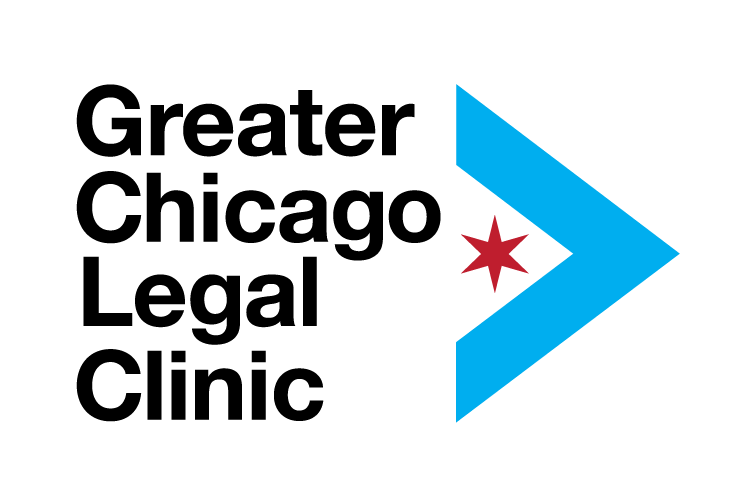
A Greater Return on Investment
An investment in legal aid is an investment in people, families, and communities.
The Reality
- In 2021, 3 in 4 (74%) low-income households in America experienced at least one civil legal problem.1
- And, 55% of people who have experienced such civil legal issues reported that the problem had a substantial negative effect on their lives, especially relating to their: financial situation, mental and emotional health, physical health and safety, and relationships.1
- 86% of civil legal needs of low-income Americans go unmet. The vast majority of these unmet needs are due to a lack of resources for legal aid organizations — a discrepancy known as the “justice gap”.2
- In Illinois there is an average of 1 legal aid attorney per 10,000 lower-income residents.3
- In Cook County specifically, over 500,000 people who qualify for legal aid services will have a legal need, per year.4
- But, due to a pro bono and legal aid shortage, fewer than 1/2 of those in need of legal assistance will be able to get it.4
- Over the past year, 33% of low-income Americans experienced at least one civil legal problem linked to the COVID-19 pandemic.1
- Yet, 91% of such pandemic-related legal issues did not recieve any or enough legal help to resolve the problem.1 In the Legal Aid Interagency Roundtable Report on "Access to Justice in the Age of COVID-19," Preisdent Joseph Biden wrote:
This Nation was founded on the ideal of equal justice under the law. Everyone in this country should be able to vindicate their rights and avail themselves of the protections that our laws afford on equal footing. Whether we realize this ideal hinges on the extent to which everyone in the United States has meaningful access to our legal system. Legal services are crucial to the fair and effective administration of our laws and public programs, and the stability of our society… The coronavirus disease 2019 (COVID-19) pandemic has further exposed and exacerbated inequities in our justice system, as courts and legal service providers have been forced to curtail in-person operations, often without the resources or technology to offer remote-access or other safe alternatives. These access limitations have compounded the effects of other harms wrought by the pandemic. These problems have touched the lives of many persons in this country, particularly low-income people and people of color.
The Impact of Legal Aid Attorneys
Legal aid organizations ensure that every person has equal access to justice regardless of their income or background. Specifically, attorneys…
- Provide a necessary resource to low-income clients with civil legal problems. Without such representation, individuals would have to navigate the legal system alone.
- Educate and assist self-represented litigants.6 Because litigants in civil legal cases are not guaranteed representation, many are forced to represent themselves in court. In addition to direct service, GCLC Advice Desk attorneys work with self-represented litigants helping to explain the legal procedures available to them and how to best utilize them.
- Find long-term and sustainable solutions that prioritize family safety and stability.6
- Increase judicial efficiency. By supporting and representing litigants with limited knowledge about the judicial process, attorneys increase the likelihood of settlement, expedite court processing, and overall save the courts’ time and resources.6
- Provide a significant return on economic investment. Funding legal aid services are an investment by government, institutional, and individuals supporters, but legal aid services and outcomes provide an overall significant return on investment. For example...
- By obtaining orders of protection, requesting orders in child custody cases, and filing for divorces, legal aid attorneys decrease rates of domestic violence and save costs associated with it, including health care.7
- By assisting tenants in eviction and foreclosure related housing matters, attorneys decrease eviction rates, limit the economic, physiological, and psychological costs of displacement to families, and reserve government and housing shelter resources.8
- By helping workers access their public benefits, attorneys not only promote economic stability but save the government additional social welfare spending.9
- GCLC fills an additional service gap for underrepresented individuals, offering legal services at a reduced cost to those who make an annual income above the cutoff for free legal aid but cannot afford quality private representation.
Sources:
“The Justice Gap: The Unmet Civil Legal Needs of Low-income Americans,” Legal Services Corporation, April 2022
“Justice Gap Report,” Legal Services Corporation, June 2017
“Attorney Access,” National Center for Access to Justice, 2020
“Investing in Justice Campaign 2021,” The Chicago Bar Foundation, 2021
“Access to Justice in the Age of COVID-19,” Legal Aid Interagency Roundtable, September 2021
“Sargent Shriver Civil Counsel Act: Report to the Legislature”, Judicial Council of California, May 2020
“Cost-Benefit Analysis,” American Bar Association, 2012
“Economic Return on Investment of Providing Counsel in Philadelphia Eviction Cases for Low-Income Tenants,” a report by Stout Risius Ross, November 2018
“A Tool for Justice : The Cost Benefit Analysis of Legal Aid,” World Bank, September, 2019



